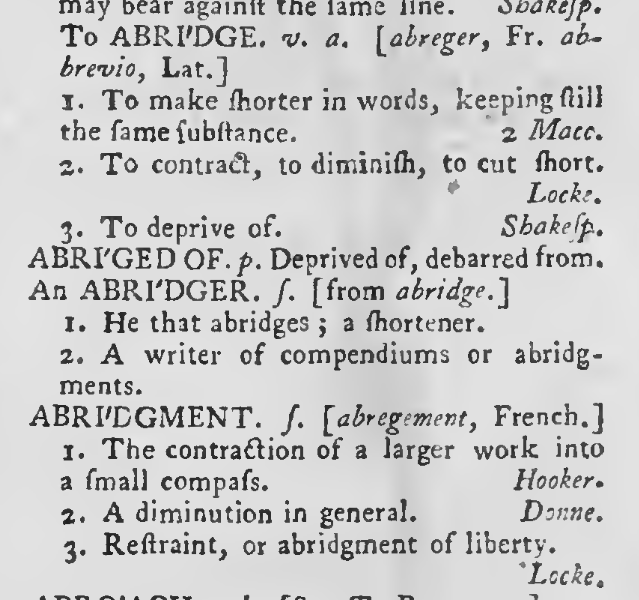Don’t abridge my freedom of speech
I hope this post finds you well.
Congress shall make no law respecting an establishment of religion, or prohibiting the free exercise thereof; or abridging the freedom of speech, or of the press; or the right of the people peaceably to assemble, and to petition the Government for a redress of grievances.”
The First Amendment protects essential freedoms. The free speech clause protects your freedom of speech by prohibiting government and people from abridging your speech. This includes being interrupted while speaking.

I mention this because I have noticed the behavior of interrupting others seems to have been normalized. When I was growing up, my family members never interrupted each other or any of their friends. It was custom to allow the person you are talking with to finish speaking. Later in life I discovered that people from large cities, like NY and Boston, freely interrupt each other. More so, than people from the country side and smaller towns and cities. It is my experience that the people who do this the most are from Brooklyn, New York and long Island, NJ.
My roommate in college was from Long Island and interrupting me, was a form of weaponized conversation maneuver. Designed to control the narrative. He did not consider it rude at all. I got used to it after a while and figured this is normal for him and his culture. Over the years I have noticed it is prevalent on TV shows. I regret not correcting him.
I must say though, I do not recommend confronting someone who habitually interrupts you. for it is perfectly normal for them and they will not understand you. However, if you are outside of big cities then casually mention it to them, and do not chastise them in public.
I would say, as a citizen, you should take note when this happens, especially when the interruption is used to change or control the narrative. I hope this info helps you.
More info Follows:
From Wikipedia:
Freedom of speech and of the press
The First Amendment broadly protects the rights of free speech and free press. Free speech means the free and public expression of opinions without censorship, interference, or restraint by the government. The term “freedom of speech” embedded in the First Amendment encompasses the decision what to say as well as what not to say.
This image is taken from a dictionary published by Samuel Johnson on April 15, 1755, titled “A Dictionary of the English Language”. This was the go-to dictionary back then. Notice the number 2, 3rd part mentions “to cut short”, another words to interrupt.
